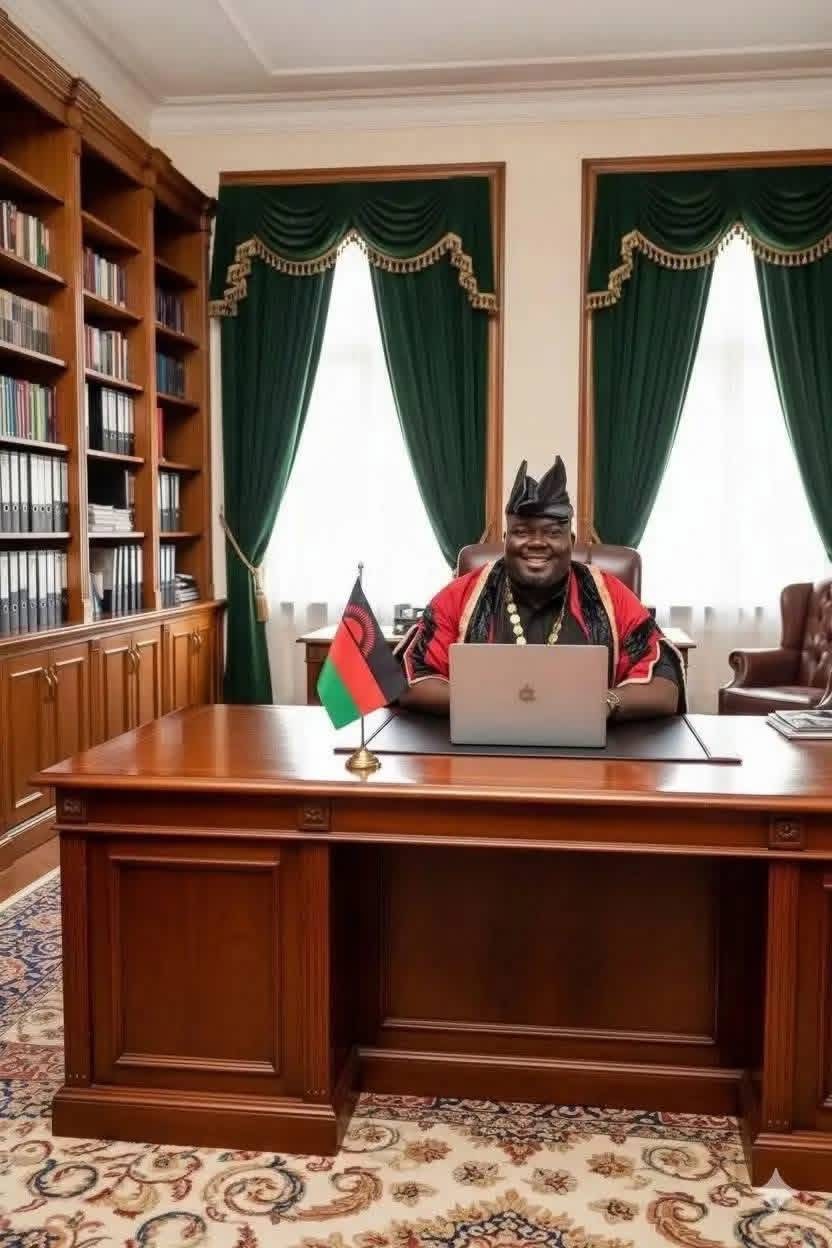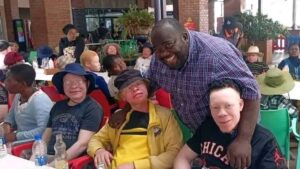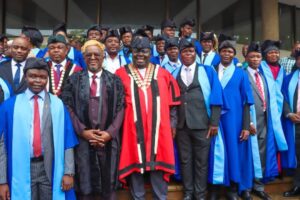
* Osman’s leadership style is likely to differ fundamentally from leaders shaped solely by academic credentials
* His legitimacy comes from relatability, authenticity, and a credibility forged in struggle
* In a context where many citizens feel disconnected from political elites, his story brings a refreshing sense of hope and possibility
Opinion piece by Chifipa Mhango, Chief Economist at Don Consultancy Group, South Africa
Blantyre, Malawi’s commercial capital, and biggest city, woke up to one of the most inspiring political stories in recent memory this week on November 14, 2025 — the election of Jomo Osman, a man who once lived on its streets, as its new Mayor. His rise is not just a political event; it is a powerful human story of hope, humility, and destiny.

Advertisement
Yesterday, November 15, during a candid and deeply moving interview with Brian Banda on Times TV, Councillor Osman spoke openly about his journey from a street child to one of the most influential public offices in Malawi.
His words were not rehearsed political rhetoric; they carried the weight of lived experience and the authenticity of a man shaped by struggle and strengthened by faith.
A Journey Marked by Hardship, Faith, and Resilience
In the interview, Osman recalled the nights he slept under shop verandas in Blantyre, surviving on the generosity of strangers and the determination to simply make it to the next day. He described how society often wrote him off “a nobody”, as he put it, yet he refused to accept that label.
His story is reminiscent of the countless young Malawians fighting through economic hardship, social neglect, and limited access to education. But unlike many whose stories remain untold, Osman’s ascent stands as a symbol of what perseverance and humility can yield.


A Biblical Story Rewritten in Modern Times
Osman’s rise mirrors several biblical narratives where God elevated individuals from obscurity, poverty, or lack of formal education into positions of great leadership and influence.
• David was a shepherd boy, overlooked even by his own family, yet he was anointed king of Israel.
• Joseph, sold into slavery, rose to become the Prime Minister of Egypt, second only to Pharaoh, his wisdom, not his schooling, becoming the tool God used to save nations from famine.
• Moses doubted his own eloquence and formal ability, yet he became one of the most significant leaders in history.
• The Apostles, most of whom were fishermen and ordinary labourers, were entrusted with building the early Church because of their faith, humility, and willingness to serve.
These stories mirror Osman’s journey in a profound way. They highlight a truth that society often forgets: God elevates whom He chooses, regardless of background, qualification, or social status.

The Difference Between Education and Wisdom in Leadership
Osman’s election ignites an important conversation in leadership theory: the distinction between education and wisdom.
Education provides knowledge, theory, and structured understanding. It equips leaders with technical tools and frameworks. It is undeniably valuable.
But wisdom, often born out of experience, adversity, and reflection; offers something more profound. Wisdom guides decision-making in moments where textbooks fall silent. Wisdom teaches empathy, resilience, and the ability to relate to diverse stakeholders.
As Osman said during his interview with Brian Banda broadcast on Times TV in vernacular Chichewa, I can paraphrase “I know the streets because I lived there. I know what Blantyre needs because I have been at its lowest points and now stand in a place to help change it.”
That is not textbook leadership; it is lived leadership. Effective stakeholder engagement demands: Emotional intelligence, Humility, Listening skills, the ability to communicate across social divides and a deep understanding of people’s daily realities — these are not taught in classrooms; they are learned through life.
Osman’s leadership style is likely to differ fundamentally from leaders shaped solely by academic credentials. His legitimacy comes from relatability, authenticity, and a credibility forged in struggle. In a context where many citizens feel disconnected from political elites, his story brings a refreshing sense of hope and possibility.

A Mayor for the People, From the People
Jomo Osman’s story is not merely inspirational; it is transformational. It forces society to reconsider how it defines leadership potential. It encourages Malawi’s youth, especially those from disadvantaged backgrounds, to believe in the possibility of changing their circumstances.
And for the City of Blantyre, his election may mark a turning point: the rise of a leader whose priorities are shaped by direct experience with deprivation, vulnerability, and the realities of ordinary residents.
His journey teaches one powerful lesson: education can elevate a person, but wisdom can elevate a generation. And when the two meet, when leaders combine humility, experience, and learned expertise, the result is transformative leadership.

A Story That Calls Us Higher
As Malawi celebrates the victory of a man who once had nothing but hope, Jomo Osman stands as a living reminder that greatness is not defined by where one begins, but by the courage to keep moving forward.
His life echoes the biblical truth that “God lifts the humble”. And as Blantyre’s new Mayor begins his term, many see not just a leader — but a symbol of what is possible when destiny meets determination.
As one of his favourite publicised quotes: “I have no classmate”, I can take it that indeed Jomo Osman is in a class of his own, and in setting his own journey of life, he has set his own class of life, he may not be matched by many in modern times.
He is classy, for even him to speak English in a TV interview, he told us that: “he needs to warm up first like a soccer play”. A spot on sense of humour that deflated the interviewer and even the more than 10,000 audience watching his TV interview on Facebook page into laughter.

A Legacy in the Making
Jomo Osman’s rise from the pavements of Blantyre to the Mayor’s office is more than a personal victory, it is a national parable of hope, faith, and possibility. His story reminds us that greatness is not reserved for the privileged or the educated alone; it can emerge from the margins, rise from hardship, and flourish through resilience.
In him, Malawi sees the embodiment of a truth echoed throughout Scripture: that God often chooses the unlikely to accomplish the extraordinary.
As Osman steps into leadership, he carries not only the mandate of public office but the hopes of every young Malawian who has ever felt overlooked. His journey challenges us to rethink how we value human potential and encourages us to build a society where wisdom, compassion, and lived experience matter as much as academic credentials.
From street corners to Civic Chambers, Osman’s transformation is a testament to what can happen when determination meets divine timing. His story does not simply end with his election, it begins there. And as he leads Blantyre into a new chapter, he stands as a powerful reminder that no beginning is too humble for a remarkable destiny.
This is a global story that deserves attention, and full of lessons.



Advertisement
